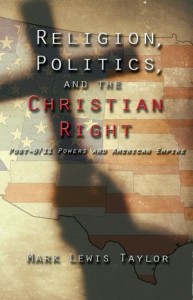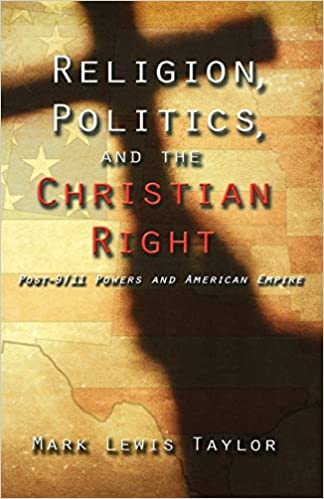
“Mark Lewis Taylor is the most prophetic theologian, political activist and cultural critic of his generation. There is simply no one on the scene like him. Don’t miss this book!” Cornel West, Princeton University.
Religion, Politics and the Christian Right: Post-9/11 Powers and American Empire (Fortress Press, 2005) addresses the political powers at work in the US after the 9/11 attacks. Taylor argues that these attacks on symbols on the World Trade Center and the Pentagon made more explicit and virulent the economic and military projects that always have driven the U.S. imperial enterprise and have mobilized the ideologies that bring public support. Special attention is given to the inflammatory and destructive roles played by the U.S. Christian Right, its Zionism, and the various more “liberal” ideologies that also tolerate reactionary agendas.
